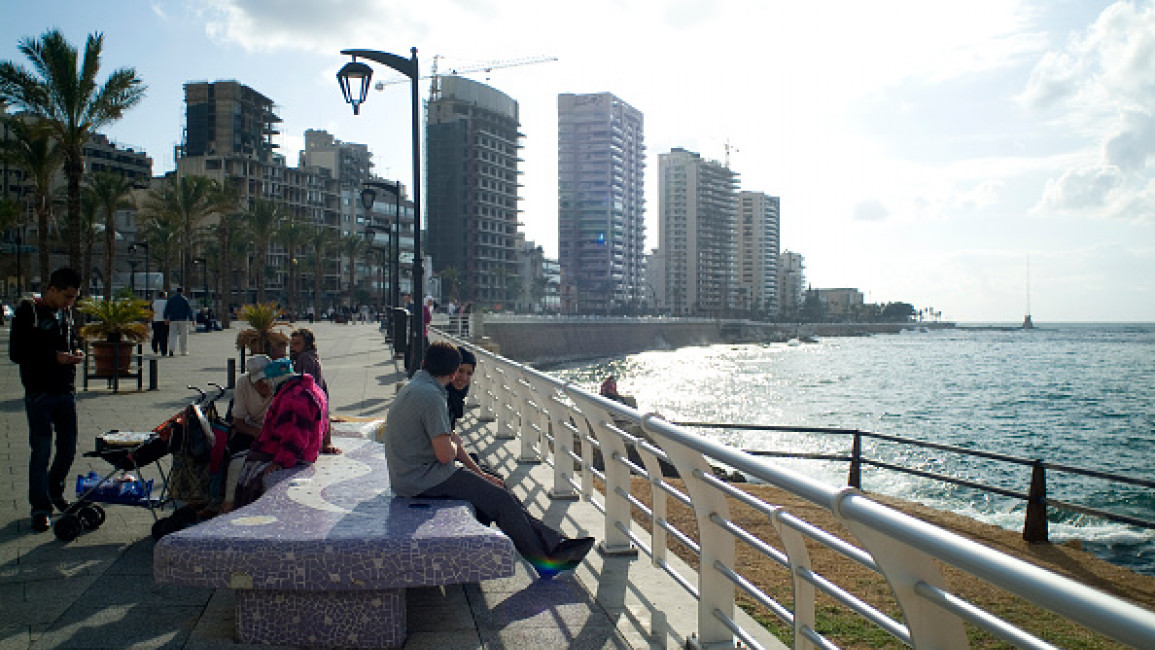Lebanon's tourism industry's recovery hampered by Israel's war on Gaza
Lebanon's tourism industry has been hindered by Israel's war on Gaza and clashes on its southern border, a blow to one of the beleaguered economy's only well-performing sectors.
Tourism experienced a boom over the summer, with Lebanese diaspora and Westerners flocking to the country in the largest numbers seen since the beginning of the financial crisis in 2019.
However, steadily escalating clashes between Israel and Hezbollah and its Palestinian allies along Lebanon's border interrupted this boom and brought tourism to a near standstill since fighting began.
"We had a very good summer for tourism, with increases in western tourists and Lebanese diaspora. But with this war, this has all turned into nothing," Pierre Achkar, the President of the Lebanese Federation for Tourism Industries, told The New Arab.
Occupancy rates for hotels across the country are between zero and seven per cent on average, compared to 25 to 50 per cent occupancy rates in the same period in 2022, Achkar said.
The Lebanese economy depends heavily on the tourism industry, generating around US$7 billion last year and bringing in much-needed dollars to bolster the country's dwindling foreign reserves.
Western and other Arab embassies have advised their nationals to evacuate Lebanon, and flights in and out of the country have been drastically reduced by airlines fearing further conflict.
Events, conferences and holidays planned in Lebanon have been cancelled or postponed indefinitely, hitting hotels in the capital city of Beirut and across the country alike.
Beyt al-Jebel, a guesthouse in the southern mountain town of Deir al-Qamer, told TNA that they have "60 per cent" fewer bookings than this time last year. They have also not had many bookings for Christmas and New Year's, usually a busy period for the hotel.
While many hotels have been able to weather the downturn in tourists for the last month, there are fears that the long-term effect on the economy will be disastrous if the conflict should drag on.
In particular, fighting could interrupt the holiday season, which typically brings in large numbers of Lebanese diaspora returning home to visit family.
"It could be a long war; no one knows what will happen. If it continues to next month, hotels might have to start cutting salaries," Achkar said.
Some hotels have already started feeling the squeeze, with one receptionist at a four-star hotel in Beirut telling TNA that 50 per cent of their paycheck had been withheld this month.
The hotel administration justified their decision by the lack of guests, promising to repay their staff once conditions "return back to normal."
Lebanon's government has said that it does not want the country to be pulled into war, but the decision lies mainly in the hands of Hezbollah and Israel.
Hezbollah has said that its decision to escalate into a full-blown war will depend on the progress of Israel's invasion of Gaza but has promised to continue border clashes.
Even if a full-blown war does not occur, the current style of low-intensity, daily bombing of south Lebanon is enough to spook tourists away from the country.



